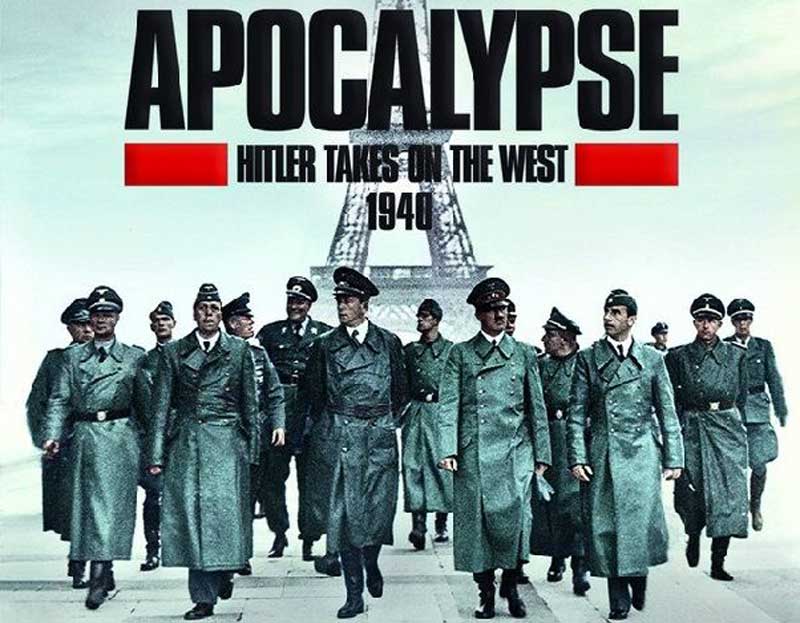Hitler Takes on the West episode 1: 1940 – Nine months after the onset of World War II, Hitler attacks the West – Belgium, the Netherlands, France and Great Britain – with intense violence. The “phoney war” ends, the real war begins, in an unleashing of violence never seen before. The devastating blitzkrieg exceeds all expectations in intensity and its soldiers push back all human limits by consuming Pervitine, a synthetic drug that prevents them from sleeping. After a four-year-long First World War, Hitler’s feat was to defeat Belgium and the Netherlands in 18 days and France in barely 45 days. The Nazi apocalypse swept through Sedan, on the Somme and to the English Channel, the last rampart of Great Britain. At Dunkirk, which had become a bottleneck, the British fled en masse under enemy fire. Can Churchill save them?
The year 1940 is the year in which the destiny of Europe changes. The German Wehrmacht opened its long-awaited campaign in the West by smashing across the frontiers of Belgium and Holland. In a daring move, Hitler’s fledgling legions faced the combined armies of France, Britain, Belgium and the Netherlands. The Allied forces had more and better weapons while the Germans had the element of surprise and the new Blitzkrieg tactics of mobile warfare.
Six weeks later, it was all over. The British Expeditionary Force (BEF) had been driven from the continent and the French, Belgians, and Dutch had all capitulated. Hitler had achieved a victory in the west, and the world would never be the same. In a few weeks, Hitler manages to do what the Kaiser of Germany had not succeeded in four years of war in 1914-1918, declaring victory and France signing an armistice in late June 1940. Speeches by the Fuhrer, testimonies by soldiers, Nazi flags hanging from Parisian monuments… these images give viewers a realistic glimpse of the chaos of the Second World War.
Hitler Takes on the West episode 1
Blitzkrieg is a word used to describe a surprise attack using a rapid, overwhelming force concentration that may consist of armoured and motorised or mechanised infantry formations, together with close air support, has the intent to break through the opponent’s lines of defense, then dislocate the defenders, unbalance the enemy by making it difficult to respond to the continuously changing front, and defeat them in a decisive Vernichtungsschlacht: battle of annihilation.
During the interwar period, aircraft and tank technologies matured and were combined with systematic application of the traditional German tactic of Bewegungskrieg (manoeuvre warfare), deep penetrations and the bypassing of enemy strong points to encircle and destroy enemy forces in a Kesselschlacht (cauldron battle). During the Invasion of Poland, Western journalists adopted the term blitzkrieg to describe this form of armoured warfare.
The term had appeared in 1935, in a German military periodical Deutsche Wehr (German Defence), in connection to quick or lightning warfare. German manoeuvre operations were successful in the campaigns of 1939–1941 and by 1940 the term blitzkrieg was extensively used in Western media. Blitzkrieg operations capitalized on surprise penetrations (e.g., the penetration of the Ardennes forest region), general enemy unreadiness and their inability to match the pace of the German attack. During the Battle of France, the French made attempts to re-form defensive lines along rivers but were frustrated when German forces arrived first and pressed on.




